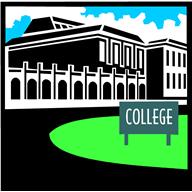
A recent article on NBCNews.com related the story of a young woman and her start-stop-start again academic career. Over the course of a decade, she went to three colleges and into debt and, never managed to earn her undergraduate degree. This once upon a time scholar is now in what she considers a “stable communications job” and doubts she will ever go back to college.
Whether she knows it or not, this young lady’s future is anything but stable. I’ll tell you more about that later so we can address the problem of spending the precious time and money it takes to earn a degree and ending up without one. If this young woman, along with the stakeholders in her life, had researched college and not just applied, accepted and attended – then her academic career might have turned out to be very, very different.
Every student, hopefully with the help of advisors, family and other stakeholders, must gather as much intelligence on the academic institutions they are considering and how that college specifically relates to what they want to achieve by going to college. You are making an investment of time and money that can set the course for the rest of your life – it deserves your utmost consideration.
The above statement is in bold because the information you gather on a college you want to attend is critical to your academic success. It does not matter if you’re thinking Ivy League or Community College, this assessment may be the difference between leaving college with or without a degree. Below is a list to help you start gathering the information you’ll need about yourself and the schools you’re considering in order to find the right fit for you:
- Have you researched the college to determine if potential degree offerings, the faculty (is this a teaching school or a research school), campus (small, medium or large), culture/demographics, location (city, suburban, remote), or even the climate suite you.
- Many students during the course of their college career, change their majors. Is there more than one academic offering that you’d be interested in at this school? Is school, or its graduates, renowned for these majors?
- Have you visited or talked to the colleges and universities you’re considering? Look Books are advertising, designed to make schools look their absolute best. You’ll learn what the real deal is with an in-person test drive of the institution.
- Have you mapped out the financial plan for all four years including tuition & fees, books, room & board, recreation, transportation and contingencies?
- Do you know how people who earned the degree you’re considering faired in the job or graduate school market after graduation?
- If you are attending a Community College, is there an articulation agreement in place that will ensure your admission as an upperclassman at a college or university you want to attend?
- Are you ready to go to college? Be honest. A semester or year delay if far better than an expensive academic disaster.
- Talk to someone who has attended or graduated from the college. Ask them to tell you about their experience. Does it sound similar to what you’re anticipating for yourself?
- Make sure your college choice is your choice; don’t let friends talk you into going to a college to have the experience they want. Stay focused on what you want out of college.
This list is just to get you started. There are many, many questions you should ask. You are assessing the school just like they are assessing you. If you go in with any other attitude you’re going to make mistakes like the young lady I described earlier. Ask your guidance counselor for sources and resources and make your own checklist to assess the college that’s best for you when you visit college websites and make campus visits.
Caveat Emptor – let the buyer beware – there is too much at risk to leave anything to chance.
I mentioned in the first paragraph that the young woman who prompted me to write this post, may seem stable today but will probably face even more challenges in the future. In my next post, I’ll share with you why without a college degree, stable jobs can get very shaky.